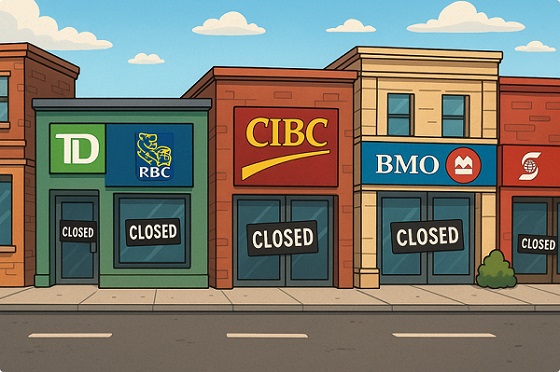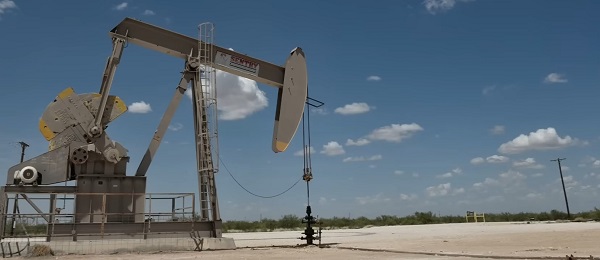Frontier Centre for Public Policy
Transition Troubles: Medical Risks and Regret Among Trans Teens

From the Frontier Centre for Public Policy
By Lee Harding
Do teens going through cross-gender hormones and surgeries know what they’re doing? A leak of internal conversations by the World Professional Association for Transgender Health shows even some doctors administering the procedures have serious doubts.
The U.S. advocacy organization Environmental Progress, led by president and founder Michael Shellenberger, made the leaks public.
“The WPATH Files show that what is called ‘gender medicine’ is neither science nor medicine,” Shellenberger said in a press release.
A short list of excerpts highlighted many telling comments.
Child psychologist Dianne Berg, who co-authored the child chapter of the 8th edition of WPATH Standards of Care, said young girls don’t understand what it means to get male hormones.
“[It is] out of their developmental range to understand the extent to which some of these medical interventions are impacting them. They’ll say they understand, but then they’ll say something else that makes you think, oh, they didn’t really understand that they are going to have facial hair.”
Canadian endocrinologist Dr. Daniel Metzger acknowledged, “We’re often explaining these sorts of things to people who haven’t even had biology in high school yet.”
Metzger said neither he nor his colleagues were surprised at a Dutch study that found some young post-transition adults regretted losing their fertility.
“It’s always a good theory that you talk about fertility preservation with a 14-year old, but I know I’m talking to a blank wall. They’d be like, ew, kids, babies, gross,” Metzger said.
“I think now that I follow a lot of kids into their mid-twenties, I’m like, ‘Oh, the dog isn’t doing it for you, is it?’ They’re like, ‘No, I just found this wonderful partner, and now want kids.’ … It doesn’t surprise me.
“Most of the kids are nowhere in any kind of a brain space to really talk about [fertility preservation] in a serious way.”
While youth keeps some from grasping the lifelong consequences of their actions, mental illness does the same for others. But that doesn’t always mean the doctors refuse to transition them.
One gender therapist administered cross-sex hormones to a patient with dissociative identity disorder. The therapist said asking the split personalities if they approved the treatment was ethical. Otherwise, a lawsuit could follow.
In one case, a nurse practitioner struggled with how to handle a patient with PTSD, major depressive disorder, observed dissociations, and schizoid typical traits who wanted to go on hormone therapy. Somehow the clear moral dilemma was lost on Dr. Dan Karasic, lead author of the mental health chapter of WPATH Standards of Care 8.
Karasic replied, “I’m missing why you are perplexed… The mere presence of psychiatric illness should not block a person’s ability to start hormones if they have persistent gender dysphoria, capacity to consent, and the benefits of starting hormones outweigh the risks…So why the internal struggle as to ‘the right thing to do?’”
Testosterone injections carry cancer risks for those born female. In one case, a doctor acknowledged a 16-year-old had two liver masses, one 11 cm by 11 cm, and another 7 cm by 7 cm, and “the oncologist and surgeon both have indicated that the likely offending agent(s) are the hormones.”
The friend and colleague of one doctor received close to ten years of male hormones, leading to hepatocarcinoma. “To the best of my knowledge, it was linked to his hormone treatment… it was so advanced that he opted for palliative care and died a couple of months later,” the doctor said.
Some female-born transitioning patients had terrible pain during orgasms, while males on estrogen complained of erections “feeling like broken glass.”
The future may be even stranger, according to one doctor.
“I think we are going to see a wave of non-binary affirming requests for surgery that will include non-standard procedures. I have worked with clients who identify as non-binary, agender, and Eunuchs who have wanted atypical surgical procedures, many of which either don’t exist in nature or represent the first of their kind and therefore probably have few examples of best practices,” the doctor said.
Unsurprisingly, some people regret their medical transitions and want to change back. Some WPATH members want to discount this altogether. WPATH President Marci Bowers admitted, “[A]cknowledgment that de-transition exists even to a minor extent is considered off limits for many in our community.”
An unnamed researcher thought it was just a matter of perspective, saying, “What is problematic is the idea of detransitioning, as it frames being cisgender as the default and reinforces transness as a pathology. It makes more sense to frame gender as something that can shift over time, and to figure out ways to support people making the choices they want to make in the moment, with the understanding that feelings around decisions [may] change over time.”
Should our physical being be substantially altered and re-altered according to our feelings? Is transitioning a matter of mental health or self-expression? At least Alberta is putting the brakes on these dubious practices for minors. Other provinces should follow.
Lee Harding is a research fellow for the Frontier Centre for Public Policy.
Banks
Debanking Is Real, And It’s Coming For You

From the Frontier Centre for Public Policy
Marco Navarro-Genie warns that debanking is turning into Ottawa’s weapon of choice to silence dissent, and only the provinces can step in to protect Canadians.
Disagree with the establishment and you risk losing your bank account
What looked like a narrow, post-convoy overreach has morphed into something much broader—and far more disturbing. Debanking isn’t a policy misfire. It’s turning into a systemic method of silencing dissent—not just in Canada, but across the Western world.
Across Canada, the U.S. and the U.K., people are being cut off from basic financial services not because they’ve broken any laws, but because they hold views or support causes the establishment disfavors. When I contacted Eva Chipiuk after RBC quietly shut down her account, she confirmed what others had only whispered: this is happening to a lot of people.
This abusive form of financial blacklisting is deep, deliberate and dangerous. In the U.K., Nigel Farage, leader of Reform UK and no stranger to controversy, was debanked under the fig leaf of financial justification. Internal memos later revealed the real reason: he was deemed a reputational risk. Cue the backlash, and by 2025, the bank was forced into a settlement complete with an apology and compensation. But the message had already been sent.
That message didn’t stay confined to Britain. And let’s not pretend it’s just private institutions playing favourites. Even in Alberta—where one might hope for a little more institutional backbone—Tamara Lich was denied an appointment to open an account at ATB Financial. That’s Alberta’s own Crown bank. If you think provincial ownership protects citizens from political interference, think again.
Fortunately, not every institution has lost its nerve. Bow Valley Credit Union, a smaller but principled operation, has taken a clear stance: it won’t debank Albertans over their political views or affiliations. In an era of bureaucratic cowardice, Bow Valley is acting like a credit union should: protective of its members and refreshingly unapologetic about it.
South of the border, things are shifting. On Aug. 7, 2025, U.S. President Donald Trump signed an executive order titled “Guaranteeing Fair Banking for All Americans.” The order prohibits financial institutions from denying service based on political affiliation, religion or other lawful activity. It also instructs U.S. regulators to scrap the squishy concept of “reputational risk”—the bureaucratic smoke screen used to justify debanking—and mandates a review of past decisions. Cases involving ideological bias must now be referred to the Department of Justice.
This isn’t just paperwork. It’s a blunt declaration: access to banking is a civil right. From now on, in the U.S., politically motivated debanking comes with consequences.
Of course, it’s not perfect. Critics were quick to notice that the order conveniently omits platforms like PayPal and other payment processors—companies that have been quietly normalizing debanking for over a decade. These are the folks who love vague “acceptable use” policies and ideological red lines that shift with the political winds. Their absence from the order raises more than a few eyebrows.
And the same goes for another set of financial gatekeepers hiding in plain sight. Credit card networks like Visa, American Express and Mastercard have become powerful, unaccountable referees, denying service to individuals and organizations labelled “controversial” for reasons that often boil down to politics.
If these players aren’t explicitly reined in, banks might play by the new rules while the rest of the financial ecosystem keeps enforcing ideological conformity by other means.
If access to money is a civil right, then that right must be protected across the entire payments system—not just at your local branch.
While the U.S. is attempting to shield its citizens from ideological discrimination, there is a noticeable silence in Canada. Not a word of concern from the government benches—or the opposition. The political class is united, apparently, in its indifference.
If Ottawa won’t act, provinces must. That makes things especially urgent for Alberta and Saskatchewan. These are the provinces where dissent from Ottawa’s policies is most common—and where citizens are most likely to face politically motivated financial retaliation.
But they’re not powerless. Both provinces boast robust credit union systems. Alberta even owns ATB Financial, a Crown bank originally created to protect Albertans from central Canadian interference. But ownership without political will is just branding.
If Alberta and Saskatchewan are serious about defending civil liberties, they should act now. They can legislate protections that prohibit financial blacklisting based on political affiliation or lawful advocacy. They can require due process before any account is frozen. They can strip “reputational risk” from the rulebooks and make it clear to Ottawa: using banks to punish dissenters won’t fly here.
Because once governments—or corporations doing their bidding—can cut off your access to money for holding the wrong opinion, democracy isn’t just threatened.
It’s already broken.
Marco Navarro-Genie is vice-president of research at the Frontier Centre for Public Policy and co-author, with Barry Cooper, of Canada’s COVID: The Story of a Pandemic Moral Panic (2023).
Business
Manitoba Must Act Now To Develop Its Northern Ports

From the Frontier Centre for Public Policy
With U.S. trade risks rising, Manitoba has a fleeting shot to turn Churchill into a year-round Arctic shipping hub. Without bold investment, the North’s economic and strategic promise will slip away.
The window to turn Manitoba’s northern coast into a year-round shipping hub is closing fast
Rising trade tensions with the United States have given Manitoba a rare second chance to develop its northern ports. But if the province doesn’t act decisively, it will miss a historic opportunity to gain a permanent place in global trade—and reinforce Canadian sovereignty.
Manitoba exports billions in agricultural, mineral and manufactured goods to the U.S., so any disruption in that relationship has ripple effects across the province’s economy. Diversifying trade routes isn’t just smart policy: it’s an economic necessity.
Churchill, a small town on the western shore of Hudson Bay in northern Manitoba, is Canada’s only deepwater port connected to the Arctic. Churchill requires regular dredging in an ecologically sensitive area at the mouth of the Churchill River. While most attention has focused on Churchill, its potential will remain limited without serious investment to make it a year-round operation. Right now, it’s only usable during the summer months.
Premier Wab Kinew recently highlighted Churchill as a strategic asset for asserting Canada’s northern sovereignty. That may be true, but symbolic importance alone won’t sustain it. Economic value and operational reliability will. The port’s rail accessibility gives it an advantage if it can handle the volume and meet international trade demands year-round. However, the railway to Churchill is challenged because of unstable permafrost, affecting long-term reliability.
Feiyue Wang, a University of Manitoba professor and Canada Research Chair, sees Churchill as a potential game-changer. As climate predictions see a reduction in sea ice in the Canadian Arctic, shipping lanes that were once blocked for most of the year could become viable trade routes. That’s already happening.
The Arctic Gateway Group has shipped zinc concentrate through Churchill. Alberta Premier Danielle Smith and others have promoted sending oil through it. These aren’t just theoretical opportunities: they’re early evidence of what’s possible. But for Churchill to become a true supply chain hub, it needs infrastructure, investment and long-term political commitment.
Governments have already put money into the port and its rail link. But they must finish the job. That means building the capacity for four-season shipping, attracting private investment, and showing that the port will be viable over time. Manitoba should also press Ottawa to maintain a military presence in the region and use the port to reinforce northern sovereignty.
But if Manitoba is serious about developing northern trade infrastructure, it should also consider a second, ambitious alternative.
The Neestanan utility corridor, an Indigenous-led initiative, proposes a new infrastructure route—rail, roads and energy pipelines—across northern Alberta, Saskatchewan and Manitoba. The corridor would terminate at a year-round, multi-modal port on Hudson Bay, north of the Nelson River. Led by First Nations and Métis communities, Neestanan offers a broader vision for economic reconciliation and northern opportunity. Port Nelson is a deeper water port and its railway line is not in a permafrost zone, making it more feasible for year-round operations.
A century ago, Prime Minister Wilfrid Laurier’s government debated whether Churchill or Port Nelson should serve as the main northern terminal. Ottawa initially backed Port Nelson but later abandoned it due to silt accumulation. Churchill became the chosen site.
Today, both locations deserve a fresh look. With modern engineering, sediment shifts and Indigenous-led proposals, what wasn’t feasible in 1910 may now be not only possible, but necessary.
Churchill was originally built to ship Prairie grain to global markets. But its future lies in more than grain. With the right investment, it could handle a much wider range of goods and help secure Canada’s place in the evolving Arctic economy.
In short, the opportunity lies in developing both ports based on their practical and feasible characteristics, aiming to attract private investment.
This is Manitoba’s moment. But the window of opportunity won’t stay open forever. Other jurisdictions are moving faster. Manitoba must act swiftly—before the opportunity is lost.
This is a revised version of an earlier commentary published here
-

 Business2 days ago
Business2 days agoHealth-care costs for typical Canadian family will reach over $19,000 this year
-

 Censorship Industrial Complex2 days ago
Censorship Industrial Complex2 days agoDecision expected soon in case that challenges Alberta’s “safe spaces” law
-

 COVID-192 days ago
COVID-192 days agoWhy FDA Was Right To Say No To COVID-19 Vaccines For Healthy Kids
-

 Energy2 days ago
Energy2 days agoTrump Admin Torpedoing Biden’s Oil And Gas Crackdown
-

 Crime2 days ago
Crime2 days agoDown the Charlie Kirk Murder Rabbit Hole
-

 Business2 days ago
Business2 days agoIt’s time to finally free the beer
-

 Crime2 days ago
Crime2 days agoTransgender Roomate of Alleged Charlie Kirk Assassin Cooperating with Investigation
-

 Energy2 days ago
Energy2 days agoThe IEA’s Peak Oil Fever Dream Looks To Be In Full Collapse







